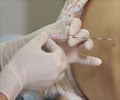Surgical patients might soon benefit from a long-acting local anesthetic, thanks to researchers in the United States and Chile.

Based on this finding, Children's Hospital Boston, a co-investigator in the study, has signed an agreement to work with Proteus, a biotech start-up company in Chile, to move the new anesthetic toward clinical adoption.
Local anesthetics currently in use last for less than eight hours. When they wear off, patients generally need opioid analgesics, which cause side effects such as nausea, sedation, shallow breathing, constipation, sleepiness and itching.
The side effects often delay recovery and sometimes result in prolonged hospitalisation.
Neosaxitoxin (neoSTX), a site 1 sodium-channel blocker based on molecules derived from aquatic organisms, provides local anesthesia for more than 24 hours.
The trial, the first of its kind, involved 137 Chilean patients undergoing laparoscopic removal of their gall bladders.
Advertisement
In addition, more neoSTX-treated patients had complete absence of pain at 12 hours, both at rest (88 percent vs. 69 percent) and with movement (80 percent vs. 60 percent).
Advertisement
"In my opinion, there has not been a truly innovative new local anesthetic medication in the last 40 to 50 years," said study co-author Charles Berde, chief of the Division of Pain Medicine at Children's Hospital Boston.
"Most drugs introduced over that time period have represented only minimal advances. There have been candidate drugs that went in novel directions, but they've had shortcomings, and none have made it to market," he added.
The finding is reported in the March-April issue of Regional Anesthesia and Pain Medicine.
Source-ANI











